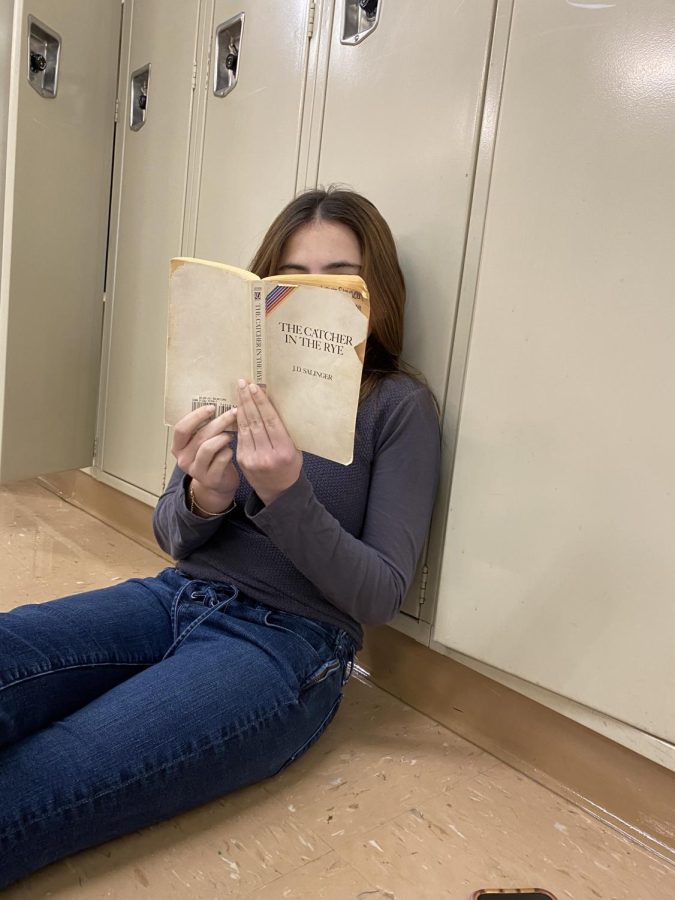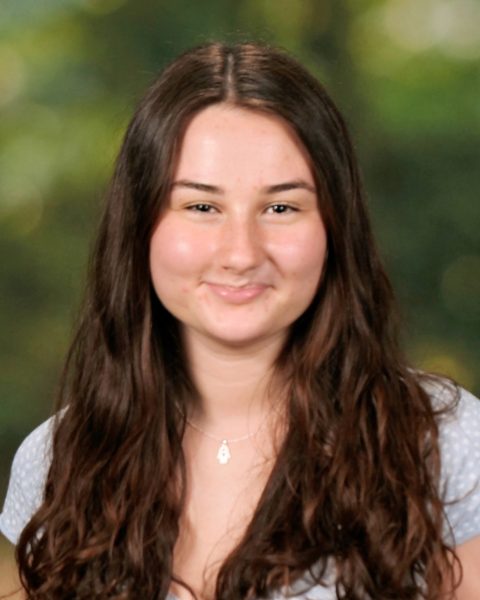Media Center keeps full access to books open
Junior Olivia Cohen reads “The Catcher in the Rye” for English class.
December 5, 2022
As students filter into the media center throughout the school day to do schoolwork, peruse the library, and check out books, Media Center Specialist Cheryl Fox Strausberg sits behind the desk, wearing her pin that says, “I read banned books.”
Across the country, books are being banned from school libraries. But not at CESJDS. The media center specialists have specifically worked to open up new avenues to access literature, including books that are traditionally banned. If a student wants to read a book that is unavailable in the library, they can fill out a request form. The requested books are then added to the monthly order.
“We have many books that people would think would be banned on our shelves, because it is not a determination of me to decide what you should and should not be reading,” Fox Strausberg said.
The media center staff also want to make sure students have access to all information and ideas. Currently, there are many books in the library that some might think should not be available, such as “Mein Kampf.” On the other hand, eighth grader Kasuba Chama appreciates that he can walk into the library and choose from any number of books, with no restrictions.
“…if I want to learn about a topic, such as racism or antisemitism or sexism or homophobia, I can learn about that,” Chama said. “And if I want to read something lighthearted, I can do that too.”
The library has become a hotspot for friends to meet up and students often head there during their free time. Students check out books and work behind the desk, while library specialists Fox Strausberg and Mirele Kessous keep the media center functioning.
“I firmly believe as a librarian that it is my responsibility to ensure that my students have access to ideas and information, and banning books is counterintuitive and counterproductive to that,” Fox Strausberg said. “I think it is awful when books get banned. And it makes me incredibly sad.”
Book banning is becoming more and more frequent, with books such as “Maus” by Art Spiegelman and “All Boys Aren’t Blue” by George M. Johnson among books banned from school libraries within the past year. The banning of “Maus” hit some people in the Jewish community harder than others. This is because the book is a recounting of Spiegelman’s father’s experience during the Holocaust.
“I think it’s on some levels bordering Holocaust denial, or has the potential to be doing that,” Academic Dean Aileen Goldstein said. “I feel very strongly that it is problematic.”
Some argue that bans don’t keep books out of students’ hands, and possibly even encourage more people to read the book, which Fox Strausberg saw firsthand when “Maus” was banned at other libraries around the country. Fox Strausberg tried to order more copies for the library shortly after it was banned and found that “Maus” was sold out everywhere.
As the demand for banned books becomes greater, libraries and bookstores have grown to meet that need, especially during Banned Books Week. In fact, the New York Public Library began their “Books for All” campaign in April of 2022 and ran it through May 2022. NYPL partnered with publishers in order to provide unrestricted access to many commonly banned books, such as “Catcher in the Rye” by J.D. Salinger, which was banned because of “vulgar language” and “things concerning moral issues.” Incidentally, that book was assigned as summer reading for JDS juniors.
As the banned books list grows, so does the debate around it. However, the CESJDS library can be counted on to remain open and uncensored for years to come.
“…Books are central,” Goldstein said. “And to say that you can’t have a particular book because it’s espousing a story with which you’re uncomfortable is cowardly.”









